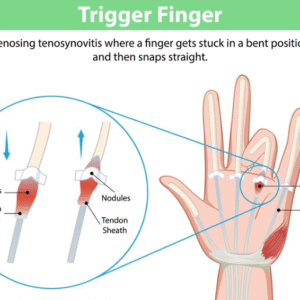Are there any days on which you feel bored in the morning and just do not want to get out of bed or even complete general tasks during the day? In most of the daily activities, people need to have music to transform their moods, or even seek energy when they are stressed or have tired thoughts which requires some peace. Listening to music is not just an activity to pass time; they create and enhance our whole health, memory and even physical strength.

This article explains various opportunities that music can bring to people’s lives and the scientific basis of all that. But hold on a minute there’s more! In this article, you’ll learn the numerous potential health benefits of listening to music that can help relax and improve your life, from decreasing stress and anxiety to improving memory and creativity.
The Science Behind Music and the Brain
Music and the brain share a very interesting as well as a very complicated relationship. If people listen to the songs, some part of the brain the auditory cortex, the hippocampus, and the amygdala become active. These areas are involved in sound processing, memory and emotions processing respectively for human beings.
- Neurochemical Effects: Music causes a release of dopamine in the brain which is a chemical that can improve people’s moods. Also, music has been proved to lead to lower stress because it reduces cortisol levels in the body.
- Enhanced Neural Plasticity: Listening to music on a daily basis enhances the brain flexibility as well as reduce memory loss.
As such, music can affect short-term moods and patient’s long-term wellbeing and health.
Health Benefits of Music: The Power of Sound
Listening to music has for a long time been related to relaxation and fun. From the many studies that have been done, it is apparent that music listening has some benefits: from managing stress, changing the mood, improving intelligence levels to even easing pain. In this article let us further discuss these benefits and the processes that lie behind them.
1. Stress Reduction and Relaxation
In essence, stress is one of the most famous benefits that stem from listening to music. Whether for Mozart’s calming melodies, or the peaceful beat of a song about nature, music can reduce anxiety.
- Slowing the Heart Rate: Calm music with a slow tempo helps regulate the heartbeat and breathing, inducing relaxation.
- Stress Hormone Reduction: Some studies prove that music has relaxing effect as there was a decrease of cortisol which is a stress hormone. Hormonal changes, such as the decrease of cortisol levels, leads always to an improvement in the general health of an individual.
- Relaxation Techniques: It is effective at reducing stress on its own but when joined with exercises like yoga or meditation the effect is even more pronounced.
If you are feeling stressed and overwhelmed, maybe creating a special playlist of songs that you enjoy will be helpful.
2. Boosting Emotional Well-being
Music has the capacity to make people of all ages to have a feeling. From happy, to melancholic, there is always a song to suit the mood you find yourself in.
- Mood Elevation: Lively songs present positive energy thus serving as appropriate antidote to a terrible day.
- Cathartic Release: Those who listen to sad songs are in fact, strengthening and conditioning their emotional self for the real world.
- Social Connection: Music in most times or always is what unites people and makes them stay together to make beautiful memories.
When you have some emotional flow in you, your preferred music gives the cool sensation to your soul.
3. Improving Cognitive Function
Listening to music isn’t just beneficial for the heart and emotion but it’s also helpful for the brain.
- Memory Enhancement: In the process of learning melody can help to recall the information which is the fundamental value in the teaching process. For instance, those students who use background music to help them learn tend to do well in understanding the material.
- Concentration Booster: Instrumental or classical music aids in concentration by reducing on interference factors. This is especially useful for commodity activities that one has to dedicate full focus to.
- Prevention of Cognitive Decline: Studies suggest that listening to or playing music can slow down loss of cognitive abilities or even enhance the well-being of subjects with Alzheimer’s disease or dementia.
Music-loving is important in keeping brains functional irrespective of age..
4. Physical Benefits of Music
It might surprise you to learn that music can benefit your physical health, too.
- Pain Management: A study has shown that music therapy is becoming more popular in hospitals for the purpose of managing pain. Students suggest that, there is a considerable decrease in the perception of pain whenever one listens to music because the brain is preoccupied.
- Improved Exercise Performance: Background music consisting of such tunes may make them feel more energetic during workouts hence increasing his sweating and teams’ performance. There are dances that go hand in hand with music and make exercise much easier and fun.
- Lower Blood Pressure: Some of the benefits are that this music can slow down the rate of beating of the heart hence making it reduce on pressure which it was proved to assist on cardiovascular issues.
It is impossible to imagine human physical therapy, rehabilitation, fitness, and many other aspects of the physical quality of life without proper music.
5. Therapeutic Applications of Music
Music therapy as a field has been created for the express purpose of utilizing the inherent healing powers of music to address physical and emotional as well as learning challenges.
- For Mental Health: Music therapy is sure to work on cases of anxiety, depression, and even post-traumatic stress disorder. People can openly deal with their feelings through guided sessions.
- For Children: Children with autism benefit from music therapy because of social and communicational developments.
- For Neurological Disorders: Now, stroke survivors and patients with Parkinson’s disease have the opportunity to use rhythmic auditory stimulation in order to control movements and coordination.
With its diverse applications, music therapy underscores the transformative potential of sound.
6. Improving Sleep Quality
Struggling with insomnia? It could be music they have been looking for a solution to their problems.
- Sleep-Inducing Properties: Hearing slow and soft remixed music in night reduces heart beat and makes the mind and body tired and in turn results in better sleep.
- Regulating Sleep Patterns: In the process, the addition of music to a routine puts the body into a sleep mode and effectively rests at night.
Out of all the lifestyle changes, music can provide a cure and opportunity for sleep to those suffering from sleepless nights.
7. Strengthening the Immune System
Believe it or not, music can boost your immunity.
- Increase in Antibodies: Listening to music has been linked to increased production of immunoglobulin A, an antibody critical for fighting infections.
- Enhanced Natural Killer Cell Activity: It also enhance the production of natural killer cells that has a vital task of enclosing and annihilating undesirable unpleasant diseases.
There are many other benefits from the daily practice of music such as strengthening your immune system.
8. Music and Mental Clarity
Music is vital to the wellbeing of the mind; it allows people to solve all issues in life with an untainted mind.
- Reducing Mental Fog: Instrumental music of different kinds benefit in concentration by reducing on interferences.
- Problem-Solving: Creative people often utilize music as a musical that fetches creativity and enables them to find solutions to challenges.
To enjoy every bit of it, Nadal keeps going back to mixing specially chosen tunes in order to regain focus whenever confusion arises.
9. Cultural and Spiritual Connections
Music has long been a cornerstone of cultural and spiritual practices.
- Cultural Identity: Music in a culturally expressive way and helps to preserve culture as a shared form of continuity.
- Spiritual Upliftment: Many people use music in order to pray, worship, chant, or use tracks in order to help calm the mind, find inner guidance, or seek spirituality.
To appreciate music at a much profound level, one can look at cultural and spirituality analysis of musical arts.
10. Enhancing Creativity and Productivity
Music has a unique ability to fuel creativity and productivity.
- Brainstorming Aid: Listing to music is highly effective in breaking the creative jinx because different genres of music may inspire new ideas.
- Workplace Productivity: Subliminal music increases productivity in activity areas such as typing, composing, and sorting.
When implemented strategically then music adds creativity and enhances concentration to your workplace.
11. Aiding Personal Growth
Music also plays a function of aiding the identificatory processes which are essential in the individual’s development.
- Introspection: With reference to the lyrics people are able to relate to experiences that they go through in their lives.
- Motivational Power: Music can motivate people into action to change for the better or change people’s perception through heart touching.
That no matter whether you are setting off on a road trip or trying to survive some hardship, music is your friend.
12. Music’s Role in Social Healing
If there is any problem or happiness in communities, they listen to music.
- Unifying Force: Concerts or community choir singing engage people who have never met at all and create bonds between them.
- Healing After Trauma: Musical interaction restores people, as individuals and groups, after calamities, wars, and other catastrophes.
In its power to bring people together, music goes beyond the individual and impacts society.
13. Age-Related Benefits of Music
Music is something special that evolves as is the case with other blessings in anyone’s life.
- For Children: Children who start music at an early age have developed language and motor skills of the child.
- For Older People: Music therapy has positive consequences on the physical and mental health needs of elders because it enhances their involvement.
All in all, making music part of life at every age, we can agree that really music is very much for ever.
Conclusion
It would be agreed that the ways in which listening to music is of health importance are in fact impressive, beyond the context of entertainment and covering the physical, emotive and mental aspects of human health. Music benefits from reducing stress, enhancing cognition, improving relationships and increasing coping skills. Today’s world is still not easy as it used to be Before; so, having devoted some time to listening to this heartening and restful music is only the most reasonable thing to do.
Therefore, if you are tired at the end of the day, requiring energy or just need to focus on some emotions you experience, listen to the music which will help you recover, improve your health and come to the right way towards happiness. Your body, mind, and soul will be grateful to you for it.
FAQs About the Health Benefits of Listening to Music
Can music really reduce pain?
Of course, music can help to diminish pain since it engages the brain to an extent that it releases endorphins that are natural opiates.
Is listening to music during work helpful or distracting?
It depends on the person practicing the activity and nature of the job. Although, on the one hand Instrumental music helps with concentration in general, on the other hand the lyrics are a source of disturbance for certain kinds of work.
What type of music is best for stress relief?
Slow-tempo, calming music, such as classical or ambient tracks, is most helpful in reducing stress.
How does music improve exercise performance?
Upbeat music often makes exercises less tiring and feel more rhythmic since it is entirely catchy.
Can music really help people with dementia?
Yes, music therapy does inspire memories, changes people’s mood and generally provides a better quality of life for suffering from dementia.
Does listening to music before sleep work for everyone?
While music benefits most people, personal preferences and the type of music matter. Experimenting with different genres can help find the best fit.






